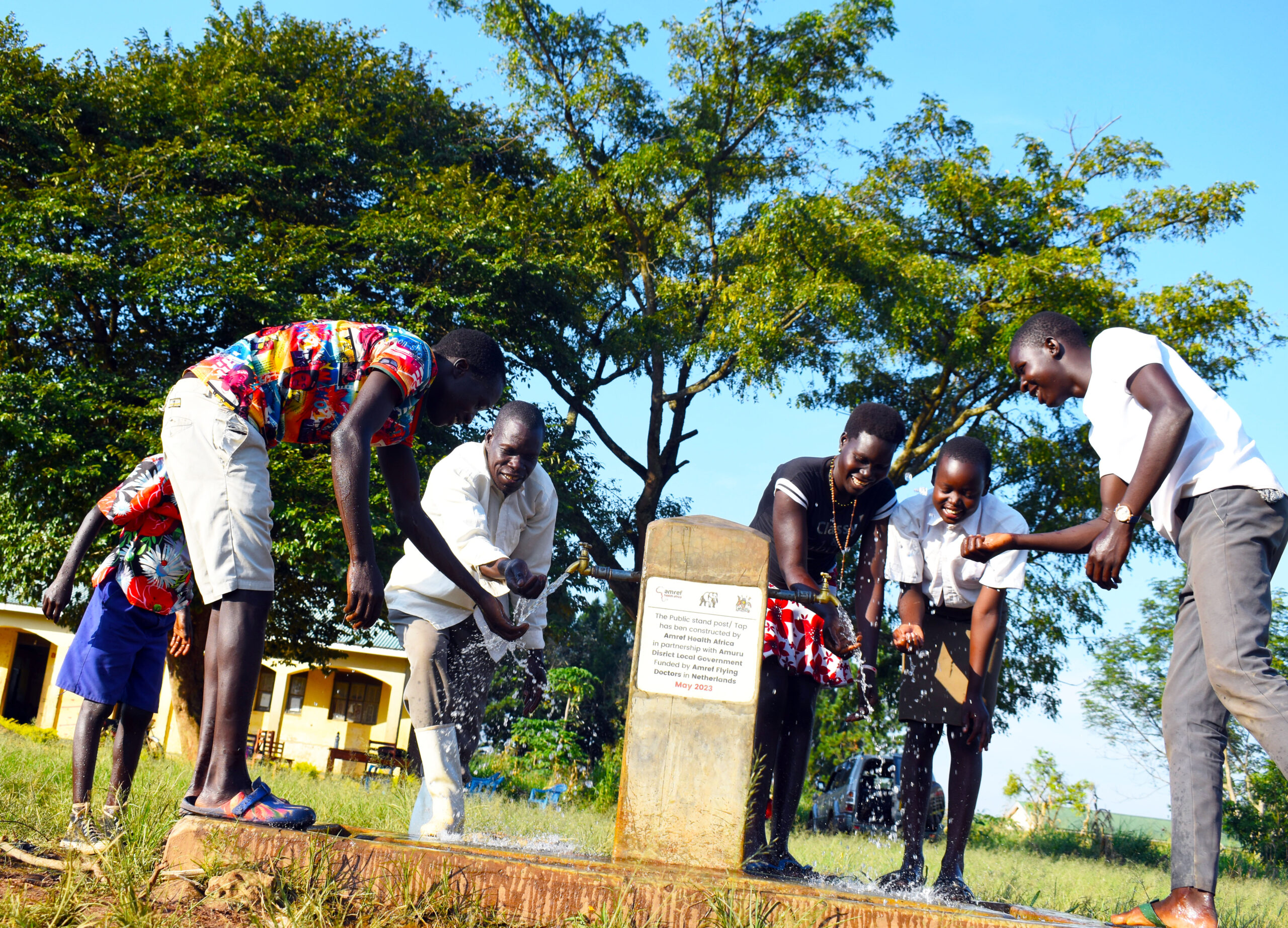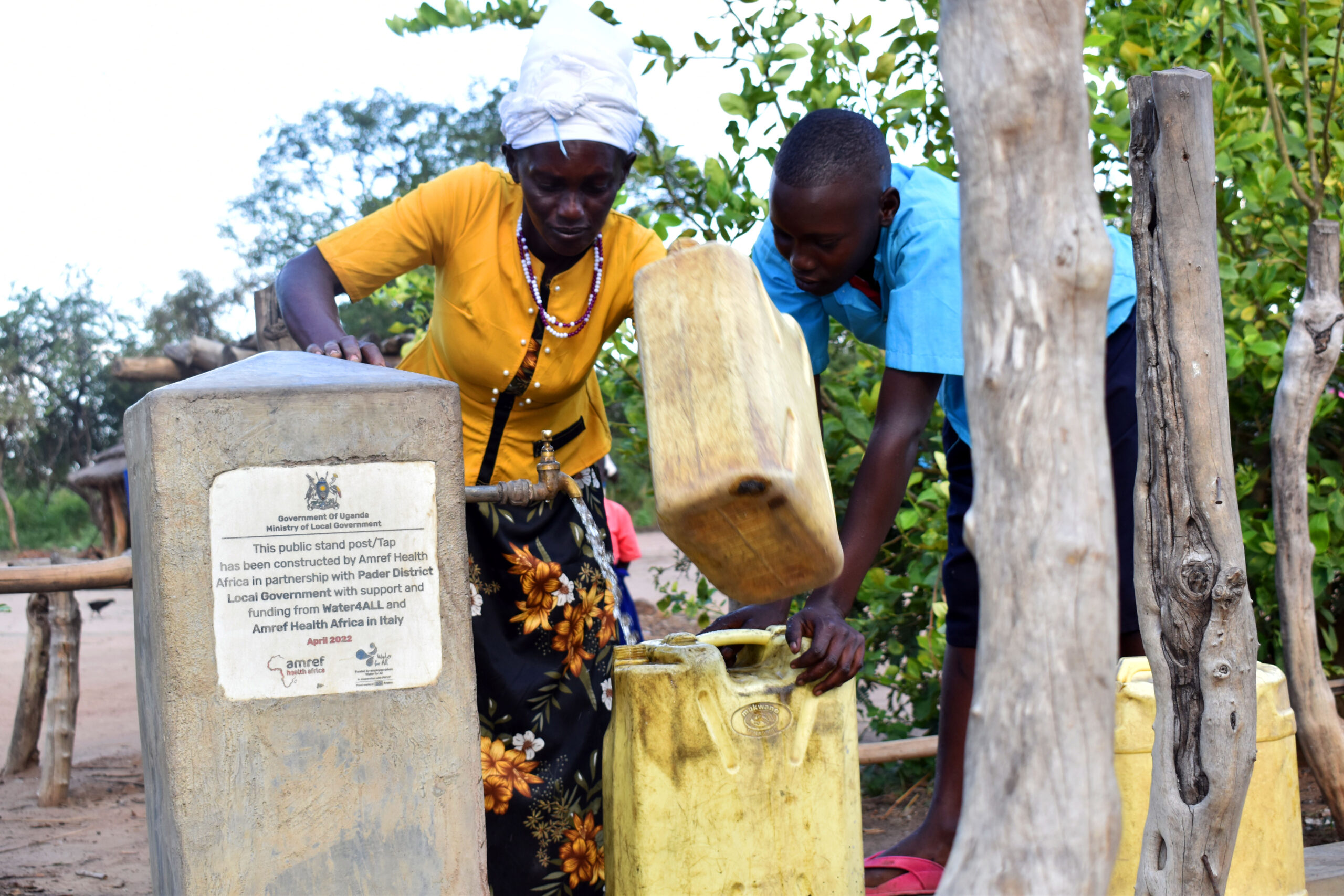The International Day to End Obstetric Fistula, 23rd May,2024
Wednesday, 22 May, 2024

We celebrate Recho Aate, a 30-year-old lady who triumphed over obstetric fistula.
Recho Aate endured eight years of shame and isolation after developing obstetric fistula during her third child’s birth in Nyanilo, Koboko municipality, Uganda. Like hundreds of other young women in similar communities, she faced societal shunning and blame. The constant inability to control her bodily functions, resulting in being soiled and smelly, caused her profound embarrassment within her community.
Globally, over 300 million women suffer from pregnancy or childbirth complications, with approximately 20 million new cases yearly. Uganda bears a burden of over 100,000 cases. New cases surface regularly.
Devastating consequences
Before her surgery, Aate avoided attending prayers, parties, and funerals due to her condition. Uncontrollable urine leakage during church services was particularly humiliating. Obstetric fistula, an abnormal opening between a woman’s vagina and bladder or rectum, causes continual urine and/or faeces leakage.
Initially, urine leakage was manageable with diapers, but it worsened over time. Despite seeking treatment, her condition persisted even after her husband’s efforts.
The Breakthrough
In 2020, Aate underwent obstetric fistula surgery in Koboko district during an Amref Health Africa surgical camp supported by the “Saving with and at risk of obstetric Fistula” project. Though initially successful, her symptoms recurred after three months, leading to a second successful surgery.

Amref Health Africa also provided Aate with a seed grant to integrate her back into the community through participation in village health initiatives. However, there is a backlog of women who have been identified as suffering from fistula, but who have not been given restorative surgery. Patrick Oryema, project manager, “Saving Mothers with and at risk of obstetric fistula” attributed the backlog of cases to few specialists to handle repairs.
Experts Speak Out
Dr. Emmanuel Odar, a senior consultant Obstetrician and Gynecologist, and fistula surgeon in West Nile, noted significant improvements in the past. Formerly, during medical camps, around 50 cases were typically addressed. However, he credited the decline in cases to the effectiveness of Health Centers IVs. Women experiencing complications are promptly referred to these centers for assistance. At Arua Regional Referral Hospital, where he once conducted 20 procedures monthly, the number has decreased to approximately 4.
Who Is Most Affected?
According to Dr. Odar, teenage mothers are particularly vulnerable due to underdeveloped birth canals, leading to obstructed labor. The narrow pelvis makes it difficult for them to deliver their babies naturally.
Dr. Paul Bishop Driloba, the District Health Officer (DHO) of Arua district, highlighted the high rate of teenage pregnancies, constituting 25% of Antenatal Care (ANC) cases. Many young mothers lack understanding about pregnancy until they receive information during ANC visits. Dr. Driloba identified school dropout rates as a major challenge and called for community and school-level interventions to empower girls to stay in school and focus on their education.
Prevention Strategies
Dr. Odar stressed the importance of skilled birth attendants during Antenatal sessions. These professionals are trained to identify abnormal fetal positions and promptly refer cases to prevent complications during labor. He also encouraged girls to prioritize education, emphasizing that delaying marriage until they are mature can reduce the risk of childbirth complications. Traditional Birth Attendants and home delays should be avoided to prevent further complications.
Amref Health Africa teams up with African communities to create lasting health change.




Comments
No comments found.